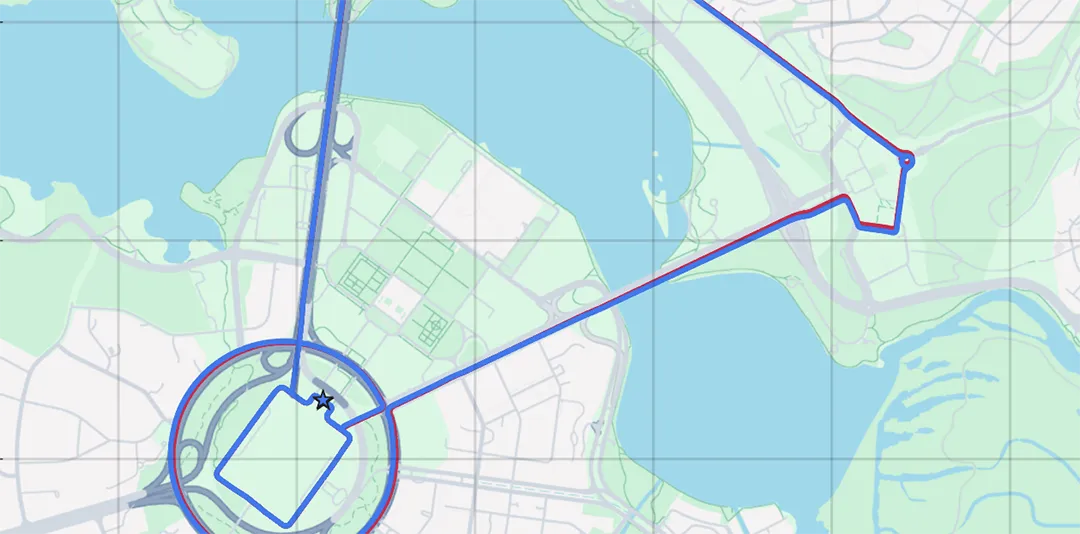Tech Article


Published on:
Recent months have seen a dramatic spike in GNSS spoofing incidents, triggered by electronic warfare in conflict zones. Advanced Navigation spoke to global journalists outlining just how concerning this deceptive technology is for industries that require precise navigation, including aviation and transportation, and why it needs to be addressed urgently.
The topic of signal spoofing has garnered increasing attention in recent months and is set to dominate discussions across the PNT and GNSS field.
Global Navigation Satellite Systems (GNSS) spoofing happens when a counterfeit radio signal overrides a legitimate GNSS satellite signal, providing the receiver with false location information. This phenomenon has been deemed a “growing issue” for pilots worldwide, as well as for drone and maritime surface vessels.
Since September of last year, a surge in spoofing incidents has been driven by electronic warfare in the contested zones surrounding Eastern Europe and the Middle East. The International Air Transport Association (IATA) found Airbus recorded nearly 50,000 interference events in 2022, more than four times as many as the year before (2021)1. Similarly, there have been increasing attempts to spoof maritime vessels, taking them off course and into territorial waters.2
In spring, additional spotlight awaits the topic when the European Commission will launch two new Galileo navigation satellites aboard SpaceX rockets, with two more planned for summer or fall. The EU’s Galileo is poised to become the first GNSS constellation to upgrade its defense against spoofing by integrating an end-to-end system to verify signal authenticity. However, due to certification timelines to equip new technologies onto aircrafts, it could be as long as 8-12 years before this is seen as a viable solution.
Spoofing first gained major headlines in 2013 when University of Texas assistant professor Todd Humphreys and his students successfully spoofed an $80 million superyacht.3 The issue resurfaced in 2019 when an Israeli firm experimentally spoofed a Tesla Model 3.4
The topic is now also treading more frequently into mainstream news reporting as ordinary citizens are also experiencing rippling effects, such as when erroneous data was transmitted through Waze—a turn-by-turn GNSS navigation app—informing Israeli drivers that they were approaching the Gaza strip amid the ongoing regional conflict.
However, this also signifies a turning point for other critical industries reliant on GNSS. What is being first experienced by the aviation sector and users of navigation applications will inevitably proliferate further outside of the battlefield.
With the increasing sophistication of electronic and cyber warfare, coupled with the dramatic reduction in the cost and complexity required to conduct spoofing, it is no longer a possibility but rather a certainty that critical industries will face disruption.
Given that numerous critical industries and modern infrastructure depend upon GNSS—everything from shipping ports to the financial sector and emergency response—it is our shared responsibility to expand dialogue beyond the current industry scope and offer viable solutions.
Thankfully, technology to combat this evolving threat is available. Critical industries can be equipped with the necessary means of protection to fortify against spoofing. There are several layers of protection that can be put in place to address this threat.
As a minimum, industries should look to integrate a multi-GNSS approach, coupled with advanced receiver autonomous integrity monitoring (RAIM) and fault detection and exclusion (FDE) techniques, to enhance positioning integrity.
Moreover, the incorporation of newer Inertial Navigation Systems (INS) featuring advanced integrity monitoring for spoofing detection and mitigation is crucial. In particular, INS using Artificial neural networks (ANN) provide significant improvements to spoofing detection and Assured PNT (A-PNT) backup compared to older systems that utilize traditional Kalman filtering.
It is imperative for the private sector to take the lead in minimizing the impact of GNSS spoofing by swiftly assessing and deploying systems that can keep pace with this growing concern.
At the same time, regulatory bodies must collaborate with the private sector to establish frameworks that facilitate rapid technological integration. Accelerating certification processes, without compromising safety standards, will ensure that equipment remains at the forefront of defense against the ever-evolving threat landscape.
In January 2024, The IATA convened global aviation industry leaders to address the rising threat of spoofing, marking the first in a series of critical conversations that will dominate the geopolitical space in the future. According to Reuters, the next meeting focused on the issue will be a conference on navigation systems held in Antalya, Turkey, in early February, organized by the International Civil Aviation Organization (ICAO).
As we navigate the complexities of an interconnected world, where technology is both a boon and a potential liability, our collective vigilance and proactive measures will determine our ability to secure critical industries against the looming threat of spoofing.

20 May 2025
Go to Article
30 March 2025
Go to Article